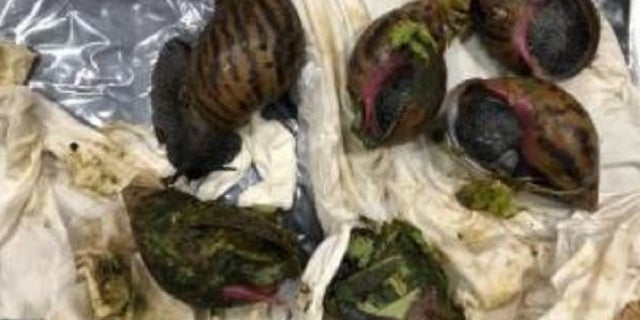

BORDER PATROL TERROR WATCH-LIST ENCOUNTERS ON TRACK TO OUTPACE LAST YEAR'S RECORD

U.S. Customs and Border Protection (CBP) officials found six Giant African Snails inside a suitcase in Detroit belonging to a traveler who had arrived from Ghana. (U.S. Customs and Border Protection)
"Our CBP officers and agriculture specialists work diligently to target, detect, and intercept potential threats before they have a chance to do harm to U.S. interests," said Port Director Robert Larkin. "The discovery of this highly invasive pest truly benefits the health and well-being of the American people."
The snails were meant to be eaten, authorities aid. They pose health risks to humans and the environment.
The Giant African Snails can carry a parasitic nematode that can lead to meningitis in humans. They can also eat at least 500 different types of plants, along with plaster and stucco, meaning they can cause significant damage to structures and ecosystems.
They are prohibited in the United States and are popular for consumption and are even kept as pets in some countries.
